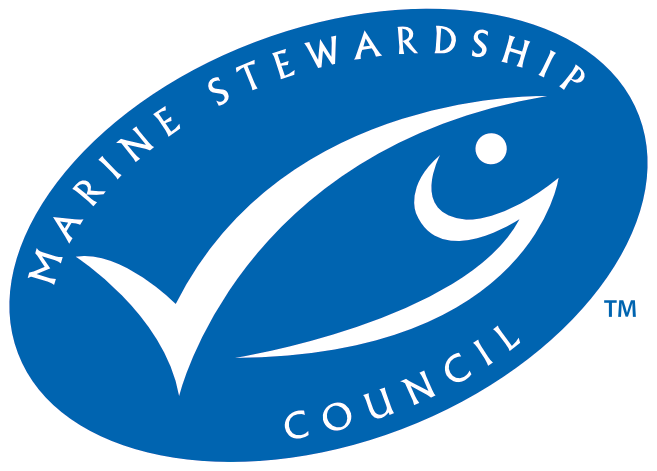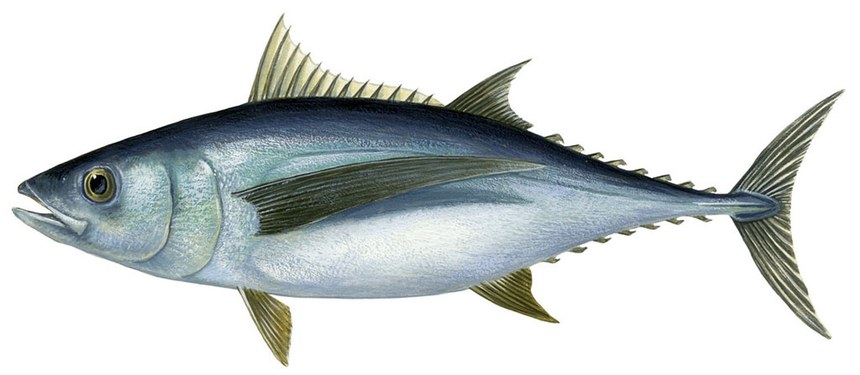
- Certifier :
- LRQA (Seafood) Limited
- Certified status :
- Certified
- Certified since :
- 13 Dec 2012
- Certificate expires :
- 21 Jul 2028
Overview
Fisheries are composed of one or more parts, each of which is entitled to receive an MSC certificate. These parts or “units” are defined by their target stock(s), fishing gear type(s) and if relevant vessel type(s), and the fishing fleets or groups of vessels.
When the term “Unit of Certification” is used for fishing units that are in assessment, it refers to the “Unit of Assessment” or “Unit of potential certification”. Expand a status below to view the parts that form this fishery. To check the detailed scope, download the latest certificate or open the Assessments page to get the latest report. Find out more by visiting our page on Fisheries
Catch by Species
| Species | Reported Catch Year | Metric Tonnes |
|---|---|---|
| Albacore tuna (Thunnus alalunga) | 2023 | 4,513 |
| Bigeye tuna (Thunnus obesus) | 2023 | 279 |
| Yellowfin tuna (Thunnus albacares) | 2023 | 1,415 |
Information is provided by an independent Conformity Assessment Body as live weight (the weight of species at the time of catch, before processing) and where a fishing season covers multiple years, the end year is given as the reported catch year. Additional information is available in the latest report, see the assessments page.
Eligibility, client groups and vessel lists
A fishery may choose to define the members of the fishery certificate. These members can be vessels or other client group members (e.g. companies that own vessels and/or companies that are named as eligible to handle certified product covered within the fishery certificate scope). Please refer to the fishery certificate statement on additional product specific eligibility criteria (e.g. product eligibility limitations, eligibility date, exclusive points of landing and the point where Chain of Custody certificate is required). Please consult the fishery Public Certification Report for product eligibility rationale.
| Documents | Published on | Files |
|---|---|---|
| Vessel List | 09 Dec 2025 | 1 files |
About this Fishery
Albacore Tuna (Thunnus alalunga) image © Scandinavian Fishing Year Book
Albacore tuna is a highly migratory pelagic fish species found throughout the world’s tropical and sub-tropical oceans. Albacore matures relatively early, at around six years, and has a moderate lifespan of about 10-12 years. It also produces many eggs at a time – some 2.6 million at each spawning.
The albacore tuna in the South Pacific Ocean comprises a discrete stock. Its population status is considered healthy.
The Fiji albacore tuna longline fishery began operating in the early 1980s. It accounts for 65% of Fiji’s national tuna catch and is of high economic importance to the island nation.
In recent years, most longline vessels operating out of Fiji are above 21m and stay at sea for around 3 weeks. The smaller vessels (<20m) operate inside Fiji archipelagic waters with average trip lengths of 9 days.
The longline fishing method involves setting a main line from a large reel, with baited hooks and floats attached at regular intervals. The floats suspend the main line in the water column at a depth of around 300-400m to target albacore tuna.
The bycatch of turtles and seabirds is extremely low and all crew on board vessels are trained and equipped to release any turtles. As a condition of certification, a reporting system has been put in place to record any interactions with turtles and seabirds. This will enable managers to determine any possible negative impacts on endangered, threatened or protected species, and develop a full strategy to manage these.
The fishery is also refining harvest control rules and management measures to protect vulnerable shark species.
“We’re the first Pacific tuna fishery to sell our products direct to Europe with the complete chain of custody in place. Before MSC certification, our albacore would go straight to canneries but now we are able to market it as a sustainable, fully traceable premium tuna to be served as delicious steaks in Europe.” - Radhika Kumar, General Manager, Solander – one of the companies in the Fiji Tuna Boat Owners Association (FTBOA)
Market Information
Fiji albacore tuna is sold predominantly in fresh form to markets in Japan, USA, Thailand and American Samoa.
